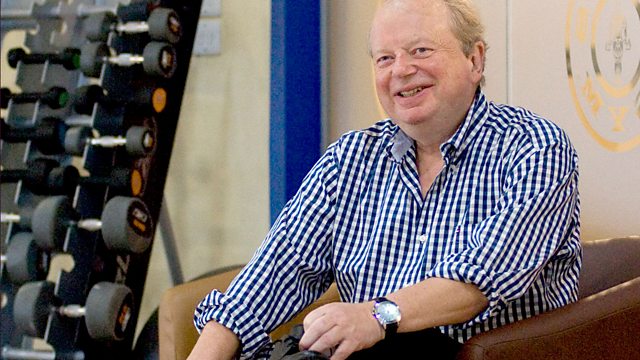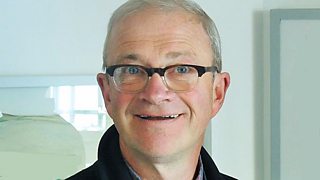
John Sergeant
Michael Berkeley's guest is former ����ý political editor John Sergeant, whose musical choices include Mahler, Kurt Weill, Bartok, Prokofiev, Shostakovich and John Adams.
Michael Berkeley's guest is the journalist John Sergeant, who graduated from Magdalen College Oxford in PPE and joined the ����ý as a radio reporter in 1970. He subsequently worked as a war reporter in Vietnam, Israel and Northern Ireland and became a political correspondent in 1981. From 1992 to 2000 he was the ����ý's Chief Political Correspondent, before a two-year stint at ITN as Political Editor. He has since appeared on TV shows such as 'Have I Got News for You', 'Countdown', QI, and the 2008 series of 'Strictly Come Dancing', on which he proved very popular with the public, if not with the judges. He has recently filmed documentaries such as John Sergeant's Tourist Trail, and Tracks of Empire, in which he explores the origins of Indian Railways.
His music choices have a distinct political slant. They begin in Vienna with Mahler's Fourth Symphony, which gives rise to a discussion about the rise of European anti-semitism. The tensions present in Vienna were replicated in Berlin, where Lotte Lenya recorded Kurt Weill's Alabama Song in 1930, three years before the Nazi rise to power forced Weill and others out of Germany. John Sergeant's next choice is the theme from the US musical 42nd Street, which demonstrates how Americans reacted to the financial crisis following the 1929 Wall Street crash. Bela Bartok's introverted Sixth Quartet was written on the eve of his own departure for America, where unlike Weill, he felt underrated. Meanwhile, the two greatest 20th-century Russian composers (Prokofiev, represented by his opera War and Peace, and Shostakovich - the 8th Quartet) ended up trying to appease the Soviet authorities. John Sergeant's final choice is an extract from John Adams's opera 'Nixon in China', covering the US President's 1972 visit to China.
Last on
Music Played
-
![]()
Gustav Mahler
Symphony No 4 in G (2nd movement excerpt)
Performers: Vienna Philharmonic Orchestra/Lorin Maazel
- Mahler Symphony No 4.
- CBS CD 39072.
-
![]()
Kurt Weill
Alabama Song (from The Rise and Fall of the City of Mahagonny)
Performers: Lotte Lenya (vocal), with The Three Admirals and unnamed orchestra
- Mack the Knife.
- NAXOS 8120831.
-
![]()
Harry Warren
42nd Street
Performers: Ruby Keeler and chorus
- Hooray for Hollywood.
- LP UAG 29644.
-
![]()
Béla Bartók - String Quartet No 6 (1939) (II. Mesto - Marcia)
Performers: Takacs Quartet
-
![]()
Sergey Prokofiev
War and Peace (1943) the final patriotic chorus
Performers: Nikolai Okhotnikov (Kutusow), Chorus and Orchestra of the Kirov Opera/Valery Gergiev
- Prokofiev War and Peace.
- PHILIPS 434 097-2.
-
![]()
Dmitry Shostakovich
String Quartet No 8 (1960) (IV. Largo)
Performers: Fitzwilliam String Quartet
- Shostakovich String Quartets.
- DECCA 421 475-2.
-
![]()
John Adams
News has a kind of mystery (from Nixon in China, Act I, scene 1)
Performers: James Maddalena (President Nixon), Sanford Sylvan (Chou En-lai), Thomas Hammons (Henry Kissinger), Orchestra of St Luke’s/Edo de Waart
- Nixon in China.
- ELEKTRA NONESUCH 979 177-2.
Broadcasts
- Sun 20 Feb 2011 12:00����ý Radio 3
- Sun 27 Nov 2011 12:00����ý Radio 3
What makes Boogie-woogie piano legend Jools Holland tick?
11 things we learned from Harry Enfield’s Private Passions
Archive Unlocked: Two Decades of Private Passions
Michael Berkeley introduces memorable interviews from Private Passions' archives.
Podcast
-
![]()
Private Passions
Guests from all walks of life discuss their musical loves and hates




